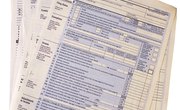The Free Application for Federal Student Aid determines your financial need. It calculates how much of a school’s cost of attendance you can reasonably afford to pay yourself. Your income and savings, as well as your parents’ income and savings if you are a dependent student, are used in this calculation. You are required to disclose your financial situation accurately; failing to do so can be deemed as fraud. Since you are required to disclose this information, it is good to know how it will impact your financial aid and what your options are.
Savings Considered Available for College Expenses
Twenty percent of your personal savings is considered available to pay for your college expenses, on the FAFSA. Dollar for dollar, you can expect that your financial aid package will be reduced accordingly – in most cases. The FAFSA asks for the amount of your assets on the day you file, and the amount used in the calculation is based off of this amount, not the amount of savings you might have when school starts. This means that should you mindlessly blow your savings after filing the FAFSA, you may still be expected to pay the 20 percent yourself.
Calculating Your Parents’ Savings
The FAFSA is more lenient on your parents’ savings. Only 5.6 percent of your parents’ savings is deemed available to pay for your college expenses. Keep this in mind if your parents want to transfer a large chunk of change to you to help out with your college expenses. While the money is in their name, FAFSA only takes 5.6 percent of it; as soon as it is in your name, FAFSA lays claim to 20 percent. Money your parents want to give you for college might be better paid directly – such as paying your rent, utility bills or giving you prepaid grocery store cards.
Automatic Zero on EFC
In some cases, FAFSA may overlook all of your savings in its calculation. This happens when you qualify for an automatic zero for your expected family contribution. The EFC is the amount the FAFSA calculates you and your family should pay for your college expenses. You are automatically eligible for a zero EFC if you or your parents meet criteria including income thresholds, received benefits in recent years from qualifying federal programs, being a dislocated worker, being eligible to file Internal Revenue Form 1040Aor 1040EZ or not being required to file an income tax return. Eligibility varies according to whether you're a dependent or independent, as well as whether you have dependents of your own.
How to Maximize Your Financial Aid
Once you understand how your savings is calculated by the FAFSA, you can decide how to maximize your financial aid eligibility. It is important that you are honest and use honest strategies. Saving money in the parent’s name or putting money intended for education into an education savings account such as a 529 or Coverdell savings account can help. You could also use your savings to pay off consumer debt or pay for things up front that you know you will need, like a new car, before you file your FAFSA. Also, choose carefully which date you will file your FAFSA.
Related Articles
References
- Time -- Business & Money: 10 Tips for Getting the Most Out of College Financial Aid
- Federal Student Aid – Information for Financial Aid Professionals: The EFC Formula, 2013-2014
- Petersons: How Federal Student Aid Eligibility is Calculated by the Government
- Finaid: Maximizing Your Aid Eligibility
- Forbes: Paying for College – How the Financial Aid Formulas Work
- Charles Schwab: Do Student Savings Mean Less Financial Aid?
Writer Bio
Sara Mahuron specializes in adult/higher education, parenting, budget travel and personal finance. She earned an M.S. in adult/organizational learning and leadership, as well as an Ed.S. in educational leadership, both from the University of Idaho. Mahuron also holds a B.S. in psychology and a B.A. in international studies-business and economics.










